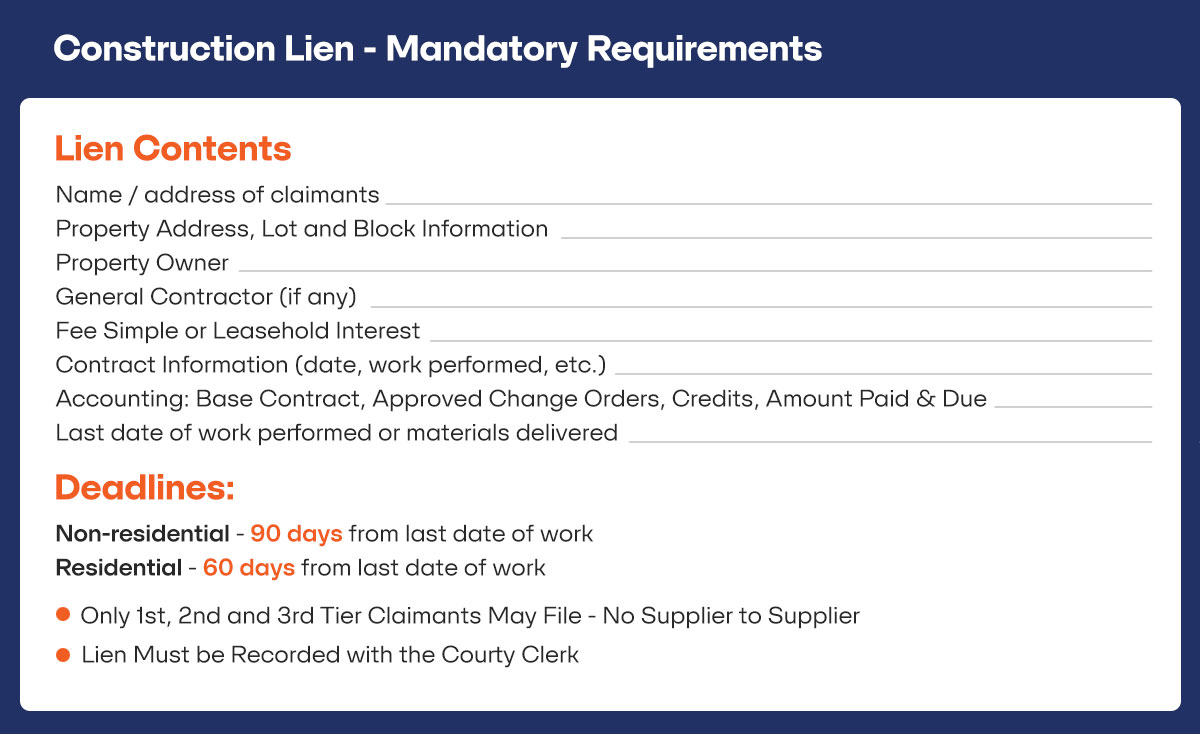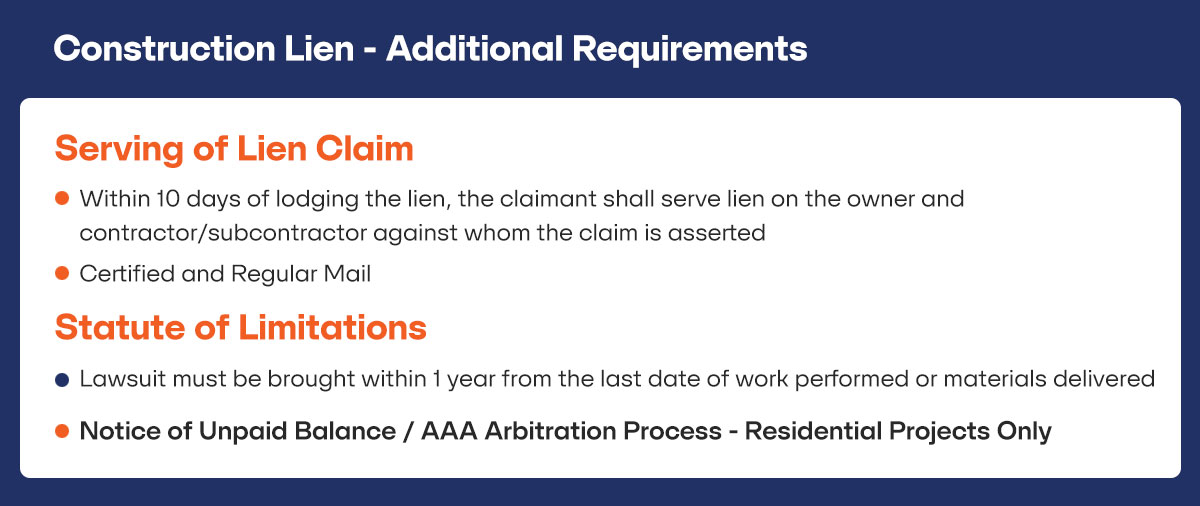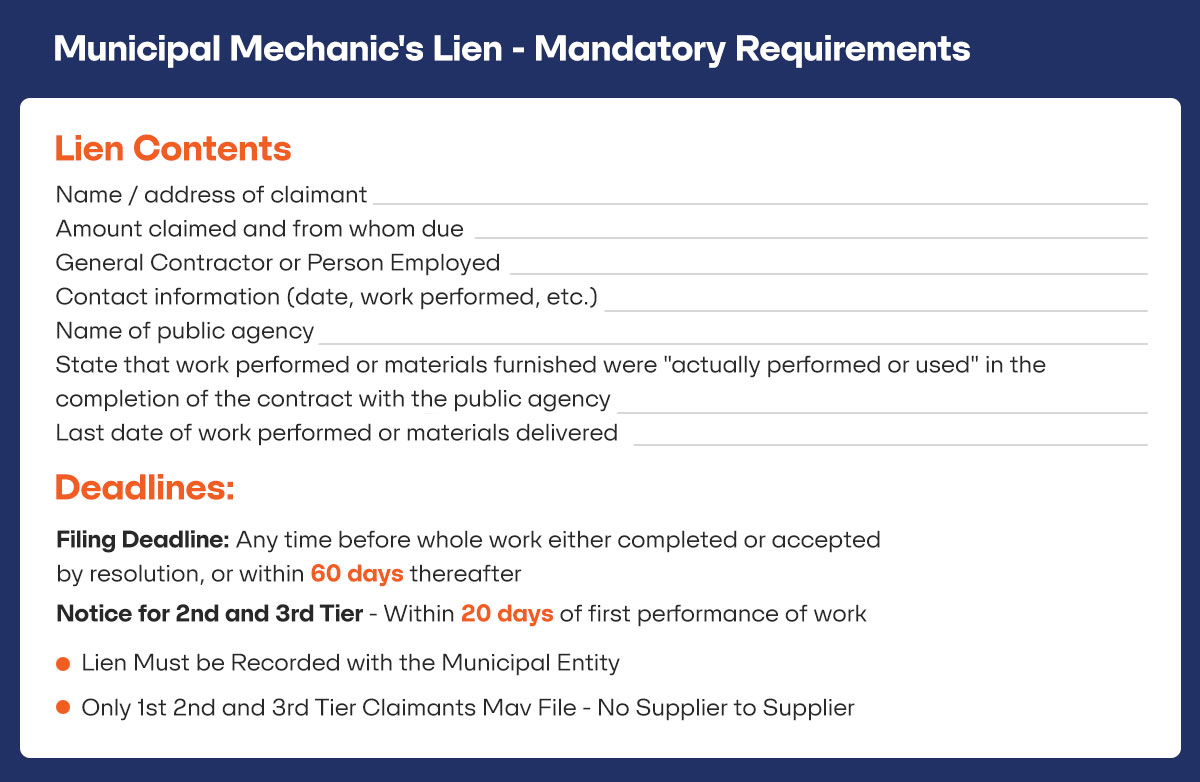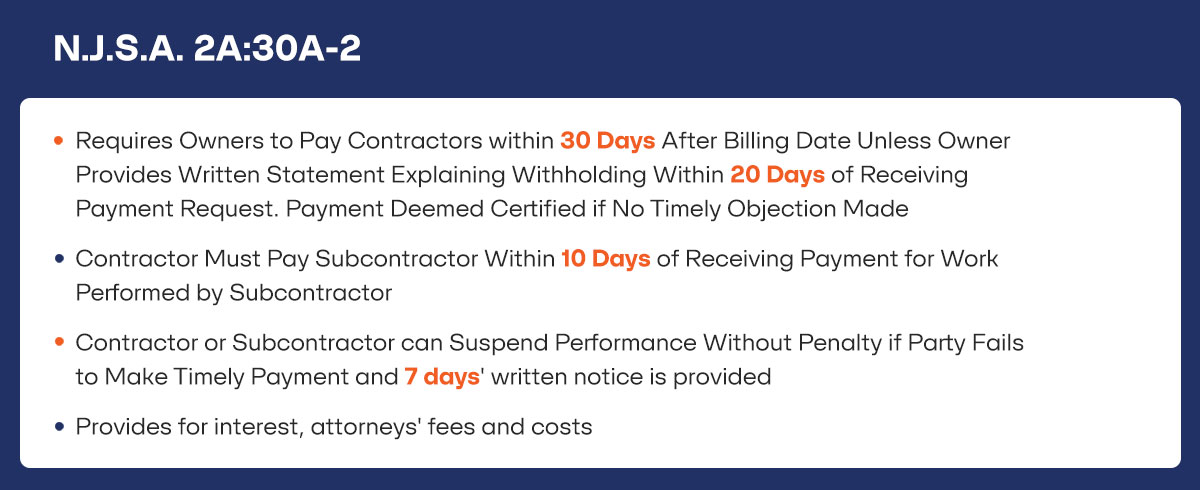Getting Paid Faster with Liens, Bonds, and Contracts - New Jersey Webinar
Learn how New Jersey contractors, subcontractors, and suppliers handle lien laws, including tenant leasehold liens, bond claim notices on public projects, and residential vs. commercial rules.
Last updated:
Aug
22
,
2025
Published:
August 23, 2025
5 mins
Read
When it comes to construction projects in New Jersey, timely payment is often one of the biggest challenges contractors, subcontractors, and suppliers face. Questions often arise regarding tenant improvements, leasehold interests, public project bond claims, and how multifamily properties are classified. Knowing these distinctions is critical to preserving lien rights and ensuring payment.
In this blog, presented by SunRay Construction Solutions and Kyle H. Cassidy, Partner, Trif & Modugno LLC, contractors, subcontractors, and suppliers in New Jersey will learn key insights on filing liens on tenant work, notice requirements for public project bond claims, and how residential versus commercial properties are defined under New Jersey law.
The Importance of Written Contracts
The first step towards getting paid faster begins with the contract. While many in the construction industry still operate on verbal agreements, disputes are inevitable, and without written terms, resolving them becomes difficult.
A contract should clearly define payment obligations and timing. Whether the agreement is based on a lump sum, time and materials, or unit costs, the terms must be memorialized in writing. Contractors can draft their own contracts, use standardized forms such as AIA templates, or rely on other industry formats, but what matters most is that the payment terms are unambiguous.
Contracts should also include provisions for interest, attorney’s fees, and costs in case legal action is required. Not only does this ensure reimbursement of expenses incurred while collecting payment, but it also acts as a deterrent against non-payment, since the other party recognizes additional costs could be added to the balance.
Avoiding “Pay-if-Paid” Clauses
One contractual trap to avoid is the “pay-if-paid” clause. In New Jersey, these provisions are enforceable, meaning subcontractors will not receive payment unless the general contractor is first paid by the owner. This can leave subcontractors unpaid if a dispute arises between owner and contractor.
Instead, contracts should use timing-based language, such as requiring payment within 30 days of submitting an invoice, rather than conditioning payment on the general contractor’s receipt of funds.
ADR Provisions: Helpful or Harmful?
Alternative Dispute Resolution (ADR) clauses are another element to consider. Mediation, a nonbinding process with a neutral mediator, can help resolve disputes before litigation and reduce costs. However, arbitration, another common ADR method, may actually increase costs, since arbitrators and their administrative providers charge fees in addition to standard filing costs.
Whether or not ADR provisions are beneficial depends on the relationship between the contracting parties and the potential disputes that may arise.
Securing Lien Rights in New Jersey
When payment disputes occur, lien rights become critical. In New Jersey, a construction lien may be filed on private projects, but not on projects owned by municipalities, counties, or the state.
A valid construction lien must include specific information:
- Claimant details
- Property address, lot, and block information
- Owner and general contractor information
- Contract details (including date, type of work, and subcontractor information)
- Accounting of amounts due, including contract value, change orders, credits, payments made, and balance owed
- The last date of work performed, or materials supplied


Deadlines are strict. For non-residential projects, a lien must be filed within 90 days of the last date of work. For residential projects, a notice of unpaid balance must be filed within 60 days. Only contractors, subcontractors, sub-subcontractors, and suppliers to subcontractors may file liens. Suppliers to suppliers may not.
Once filed, the lien must be served on the owner and contractor within 10 days via certified and regular mail. Enforcement requires filing a lawsuit within one year of the last date of work, not from the date the lien itself was filed.
Municipal projects fall under the Municipal Mechanics Lien statute. In this case, the lien does not allow foreclosure of the property but instead stops payment of funds tied to the project. The deadlines are more flexible, as claims can be filed before project completion or within 60 days after acceptance.

.jpg)
Securing Bond Rights
Bonds provide another path to payment. A surety bond guarantees payment to subcontractors and suppliers if the general contractor fails to pay.
To exercise bond rights, claimants must file a statement of claim with the surety, detailing the work performed, amounts due, invoices, correspondence, and the bond number. The surety then investigates the claim.
If the surety does not issue payment, the claimant must file a lawsuit within one year of the last date of work or material delivery. Importantly, lawsuits cannot be filed within the 90-day period immediately following submission of the claim notice.
Public projects in New Jersey require bonds, but some private projects may also be bonded. It is always worth checking, as bonds provide an additional source of recovery.
.jpg)

Lien and Bond Traps to Avoid
Several technical mistakes can invalidate lien or bond rights:
- Missing the cover page. Counties require a cover page for lien filings. Without it, the lien will be rejected.
- Incorrect filing fees. Fees are sometimes calculated per page, and failure to include the cover page in the calculation may result in rejection.
- Waiting until the deadline. Filing at the last moment leaves no room to correct errors.
- Including unapproved change orders. Only approved changes should be included in lien accounting. Unapproved amounts can disqualify the lien.
- Using an inaccurate last date of work. Punch list or warranty work does not extend the deadline.
- Second- and third-tier bond claimants failing to send pre-performance notice. Written notice must be provided before work begins.
- Delaying bond claim notices. Waiting too long risks missing lawsuit deadlines.
.jpg)
The Prompt Payment Act

New Jersey’s Prompt Payment Act is another important tool. It requires owners to pay contractors within 30 days of billing unless they provide a written explanation within 20 days. Contractors must then pay subcontractors within 10 days, and the obligation flows down the chain.
If payment is delayed, the law allows contractors and subcontractors to suspend performance after giving seven days’ written notice, without being penalized for termination.
Additionally, interest, attorney’s fees, and costs can be recovered in lawsuits stemming from non-payment under the Act.
Exchanging a Release for a Check
Finally, when payment is received, caution is necessary when signing releases or cashing checks. Release language should match the scope of payment. Broad language such as “any and all claims” may inadvertently waive future claims.
If multiple invoices remain unpaid, the release should specify that it only applies to the payment being made, not to unresolved disputes. Similarly, if a check is marked “full and final payment” but is less than the disputed amount, cashing it may legally settle the claim for that reduced amount under the doctrine of accord and satisfaction.
The safe approach is to reject such a check and provide written notice that partial payment is not accepted as final settlement.
Final Thoughts
Getting paid in the New Jersey construction industry requires careful planning and attention to detail. Written contracts with clear payment terms, vigilance against problematic clauses, strict compliance with lien and bond deadlines, and strategic use of the Prompt Payment Act are all essential.
Contractors and subcontractors should also pay close attention when exchanging releases for payments, ensuring that rights to unresolved claims are preserved. By understanding and applying these principles, construction professionals can better protect themselves against non-payment and secure the compensation they deserve.
To better understand your lien rights, check out our guides on the Notice to Owner Florida and the Florida Mechanics Lien.
Common Questions Contractors Ask
In other states, some commercial properties have a lease provision recorded in the county stating that if you’re contracted by the tenant, you cannot lien the real property. Is there something similar in New Jersey? If so, can you file against the tenant’s interest in the property, and does that lease provision need to be recorded prior to the work performed?
Yes, you can file a lien against a tenant’s leasehold interest in New Jersey. That is permissible. However, whether a contractual provision can completely prevent a lien is less clear. Generally, lien rights exist, but to assert a lien against the ownership interest (not just the tenant’s leasehold), the owner must have approved the work or shown involvement in the transaction.
In short, you can typically still file a lien against the leasehold interest, and depending on circumstances and the owner’s consent, you may even be able to lien the ownership interest. The timing of recording such a lease provision could affect enforceability, but facts and owner involvement will play a key role.
On public jobs, are second- and third-tier subcontractors required to serve a pre-work notice to the contractor to preserve payment bond claim rights? Can a claim still be filed if no notice was sent?
Yes, notice is required. If the notice is not sent, your lien rights may still exist, but they could be limited by the available funds. A notice must be served before filing a lien.
With respect to bond rights, failing to send the notice could create complications. However, in some cases, this issue can be corrected later, but ultimately, the notice must be sent before filing a bond claim.
What is considered a residential property in New Jersey? Do multifamily housing, duplexes, apartments, and condos fall under residential or commercial?
It depends on ownership structure:
- If a multifamily property is owned by an entity and leased to residents, it is considered commercial.
- If each occupant owns their unit individually, it is considered residential.
The determining factor is whether the residents are owners (residential) or tenants (commercial).
If you’re working for the owner of an individual unit (even in a multifamily condo building), and that owner is not a leasing company, it can still be considered an owner-occupied residential situation, not commercial.
If work is performed on common spaces or commercial areas of a condo or apartment building where individual units are owned, is that considered commercial property?
This situation is more complex. If the work is being performed for an association or the owner of the complex in the common space or commercial space, it likely falls under commercial property.
However, this can vary depending on the specific facts. While residential units individually owned are considered residential, common or shared spaces lean toward commercial classification. Further case-specific legal review may be necessary.












